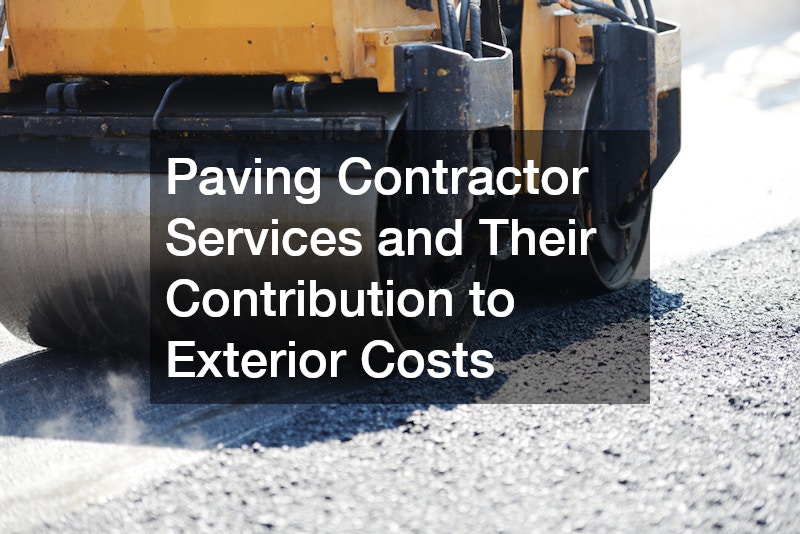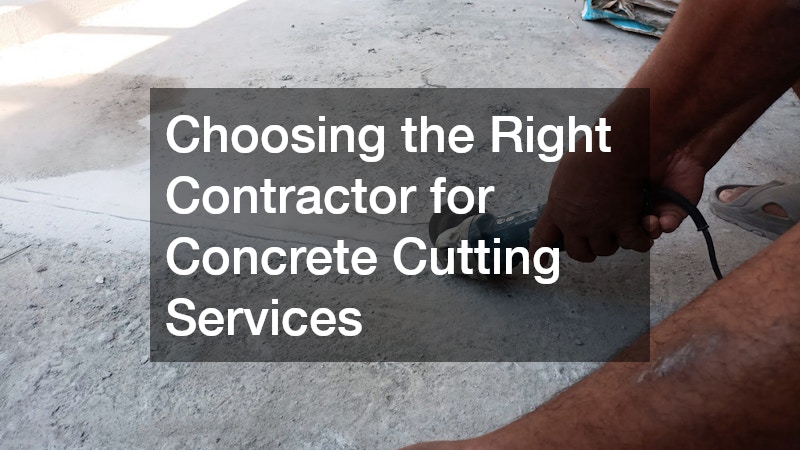The cost of building a new home is influenced by a variety of factors that potential homeowners must consider. From the initial custom home cost to the various components that add up throughout construction, the journey of home building is a detailed and multifaceted process. In this extensive guide, we’ll explore ten critical factors that significantly affect the expense of your new home. Understanding these elements will not only help you plan better financially but also make informed decisions when it comes to customizing your dream home.
The Impact of HVAC Installation on Your New Home Budget
A critical component of any new home is its heating, ventilation, and air conditioning (HVAC) system. The design and installation of an HVAC system are central to your home’s comfort and energy efficiency, impacting both initial home cost and long-term utility expenses. The selection of an experienced HVAC company is essential to ensuring that the system is well-suited to your home’s specific needs, taking into account factors such as square footage, local climate, and personal preferences.
More specifically, the choice between various HVAC options such as centralized systems, ductless mini-splits, and geothermal heating can significantly alter the budget. Each option comes with a distinct set of installation and operational costs. The technological advancements in HVAC systems, while potentially leading to energy savings in the long term, might also entail higher upfront expenses. Thus, consulting with an HVAC company that understands the intricacies of these choices can be invaluable.
Finally, regular maintenance and potential repairs by a reliable HVAC company should be part of your ongoing budgeting considerations. A robust maintenance schedule not only ensures longevity and efficiency but also prevents unexpected repair costs. Thus, understanding the long-term financial implications of your HVAC decisions is essential for accurately calculating the custom home cost.
Why Plumbing Choices Can Drive Up Costs

Plumbing choices are pivotal in determining not just the functionality but also the budget of your new home. Engaging a qualified plumber to install a reliable plumbing system is essential for avoiding future issues and keeping the home cost within budget. The layout and materials of the plumbing system can differ widely, affecting both the immediate and future financial outlook of your home.
The type of materials chosen for plumbing, such as copper, PEX, or CPVC, can affect the initial setup costs as well as maintenance. Copper, for example, is pricier but known for its durability. A plumber with expertise in various materials can guide you through cost-effective options that do not compromise quality. Additionally, the complexity of the plumbing layout and any custom features can add to the construction expenses.
Moreover, any modifications or upgrades during or after construction can result in additional plumbing expenses. Choosing energy-efficient fixtures and appliances not only contributes to a sustainable lifestyle but can also lead to savings in water and energy bills, offsetting higher initial costs. Thoroughly considering these factors with a professional plumber’s insight ensures that you are prepared for any potential changes in the home cost.
How Pipe Repair Requirements Can Affect Construction Expenses
Pipe repair needs can significantly impact both construction timelines and budgets. When building a home, the condition of existing pipes and the likelihood of future repairs are considerations that cannot be overlooked. An inspection for potential issues during construction can help integrate necessary measures into the initial plans, reducing the probability of costly repairs down the line.
A comprehensive approach to pipe repair during the home building phase involves assessing the durability and longevity of the materials in use. This often includes analyzing whether modern piping technologies can support your home’s needs more effectively than traditional systems. When planned and executed well, integrating robust solutions such as trenchless pipe repair can mitigate disruptions and preserve the custom home cost.
Further, engaging a specialist in pipe repair to conduct regular inspections post-construction is advisable. This proactive approach helps in identifying issues early, potentially avoiding significant repair costs. Integrating preventative maintenance into your long-term budget strategy ensures that pipe repair issues do not become an unexpected financial burden, leading to a more accurately projected custom home cost.
Septic Tank Cleaning Needs and Their Influence on Your Total Cost

Septic systems are crucial for homes not connected to municipal sewer lines, impacting both construction and maintenance costs. The initial cost of installing a septic system can add to your custom home cost, depending on the design and installation requirements. Experts in septic tank cleaning are essential for establishing a system that matches your property’s specifications and usage needs.
Regular septic tank cleaning and maintenance are vital for avoiding costly emergencies. Over time, a neglected system can lead to severe complications, with repairs and replacements being much more expensive than regular servicing. Thus, when planning the total home budget, incorporating routine septic tank cleaning is necessary to sustain the system’s efficiency without unexpected expenses.
The long-term effects of septic tank cleaning, such as improved efficiency and reduced likelihood of system failure, contribute to stable home operating costs. Working with professionals who understand the technical and environmental aspects ensures that the septic system remains a supportive component of your custom home rather than an expensive liability.
Factoring in Water Heater Installation and Efficiency Ratings
The water heater is another aspect of home construction that can affect custom home cost, with the choice between conventional tank heaters and tankless models being particularly significant. A tankless water heater, although more expensive initially, offers considerable energy efficiency benefits that can reduce utility costs over time.
Considering the efficiency ratings of different water heaters is essential when developing your home budget. A higher-rated heater may warrant a more significant upfront investment, yet the energy savings and potential rebates can offset these costs in the longer term. Understanding these dynamics enables homeowners to balance initial custom home cost with future savings.
It is also advisable to consult with specialists who can recommend systems tailored to your household’s hot water requirements. Proper installation by a knowledgeable technician ensures that the water heater functions optimally, maintaining its efficiency and extending its lifespan. Such expertise prevents additional costs related to inadequate or improper installations, safeguarding the projected custom home cost.
How Roofing Service Selection Affects Long-Term Value and Cost

The roof, being a critical protective element of any home, has substantial implications for both immediate and future costs. Engaging an experienced roofing service to explore options that suit your climate and specific design preferences is essential. Whether choosing between materials like asphalt shingles, metal roofing, or tiles, each has distinct installation and maintenance cost profiles that affect the custom home cost.
The durability and warranty provided by different roofing service options should be a significant consideration when balancing a new home’s budget. While certain materials may require a more significant initial investment, their extended lifespan and protective qualities against weather elements can provide long-term savings and value to the home.
Routine maintenance by a professional roofing service can prevent premature degradation and expensive repairs, preserving the home’s structural integrity and aesthetic appeal. Proactively addressing potential roofing issues contributes to maintaining a stable custom home cost, ensuring the roof supports overall home longevity and energy efficiency.
The Role of Residential Painters in Final Home Pricing
Professional painting can transform both the interior and exterior of a home, influencing its final pricing and valuation. Hiring skilled residential painters ensures high-quality finishes that can significantly enhance a home’s aesthetic and market appeal. A thorough assessment of color choices and finishes can impact the custom home cost by dictating the scope and detail of work required.
Investing in high-quality paints and considering factors such as durability and resistance to weather conditions can further affect the painting budget. Residential painters offering detailed consultations can help match paint options to fit both stylistic tastes and practical needs, ensuring longevity and minimizing future maintenance expenses.
Moreover, the expertise of residential painters can facilitate efficient project completion, reducing the likelihood of unforeseen costs related to delays or errors. Quality craftsmanship in the painting process can elevate a home’s perceived value, proving to be a beneficial investment towards achieving desired aesthetics without compromising the custom home cost.
Paving Contractor Services and Their Contribution to Exterior Costs

The choice of paving contractor services significantly affects the exterior appeal and functionality of your property. Driveways, pathways, and patio designs add both utility and aesthetic value, impacting the custom home cost. The selection process for materials such as stone, asphalt, and concrete determines both the durability and cost implications for exterior development.
Collaborating with a reputable paving contractor allows homeowners to design solutions that meet practical requirements while complementing the home’s architectural style. A detailed consultation on various paving options can reveal the potential for cost savings and enhanced property value, guiding informed decision-making about suitable materials and designs.
Beyond initial installation, the role of a paving contractor extends to ongoing maintenance, ensuring the longevity of the paving solutions. Regular assessments and repairs prevent issues like cracking or unevenness, which can detract from the property’s appearance and usability, thereby maintaining the integrity of the initial custom home cost projections.
Landscaping Features That Add Value — And Expense — to Your New Home
Landscaping is a significant factor that adds not only beauty but also value to a new home. Thoughtfully designed gardens, outdoor living spaces, and functional layouts can increase the overall cost of the home, yet they also contribute to its appeal and resale value. Elements such as hardscaping, lighting, and plant selection can either enhance or complicate the custom home cost.
Choosing a skilled landscaping professional who understands how to balance aesthetics with sustainability can help homeowners create outdoor environments that suit their lifestyles while managing expenses. The choice of drought-resistant plants, for instance, benefits both the environment and budget, minimizing water usage and maintenance costs.
Incorporating such strategic landscaping decisions can ensure an increase in property value without unexpected spikes in the home’s overall budget. Thus, the integration of long-term landscaping plans into the initial construction budget allows for a more realistic assessment of the anticipated custom home cost, aligning with your financial capabilities and aesthetic desires.
How Excavation Services Can Significantly Alter Your Build Budget
During the construction process, excavation services are a starting point that sets the stage for all subsequent developments. This phase, involving soil removal, grading, and foundation preparation, can dramatically alter the build budget. Factors such as terrain complexity and soil conditions dictate the extent of work required, impacting the custom home cost.
An excavation service that provides detailed assessments can help anticipate potential challenges and plan accordingly to stay within budget. Issues such as unexpected rock formations or water table considerations must be addressed with professional expertise to prevent costly delays or alterations to the construction timeline. In many cases, experienced excavation teams can also offer valuable recommendations about site drainage, erosion control, and structural support measures that add long-term stability to the foundation. These early insights not only ensure a safer build environment but also protect against future repair costs that could arise from foundational shifts or poor water management.
Once actual construction begins, maintaining an ongoing relationship with excavation services ensures that any necessary site adjustments are managed efficiently. This foresight prevents sudden budget increases as the project advances, contributing to a well-managed, streamlined process that respects the financial plans laid for achieving the desired custom home cost.
The custom home cost is heavily influenced by various factors, each contributing to the overall financial investment required to construct your dream home. By understanding aspects like HVAC systems, plumbing, pipe repair, septic tank cleaning, and more, homeowners can foresee potential expenses and plan accordingly. Engaging professionals in all relevant areas is crucial for navigating complexities and making cost-effective decisions that ensure quality and functionality throughout the home.
The cumulative effect of these factors makes it indispensable for prospective homeowners to engage in detailed budgeting and comprehensive planning. With thoughtful consideration and strategic choices, you can manage the custom home cost effectively, aligning with both aesthetic aspirations and fiscal realities.
Ultimately, whether it’s selecting durable materials, efficient systems, or engaging in regular maintenance, each decision plays a vital role in determining the true cost and value of your new home, shaping it into a comfortable, sustainable, and economically sound environment for years to come.


